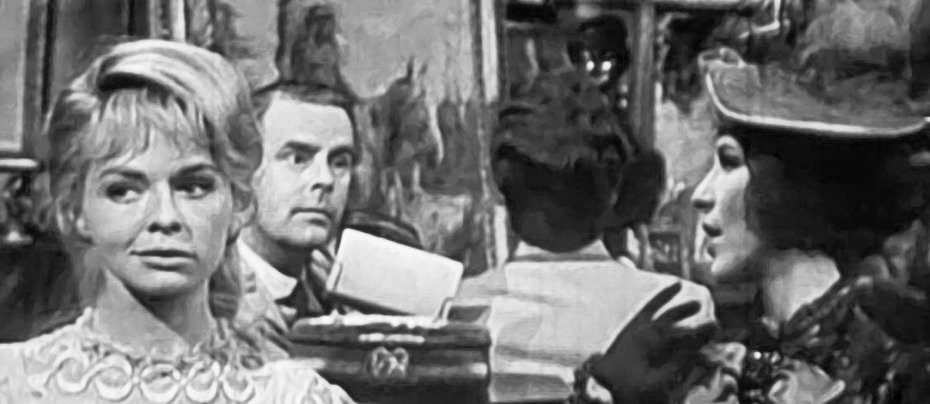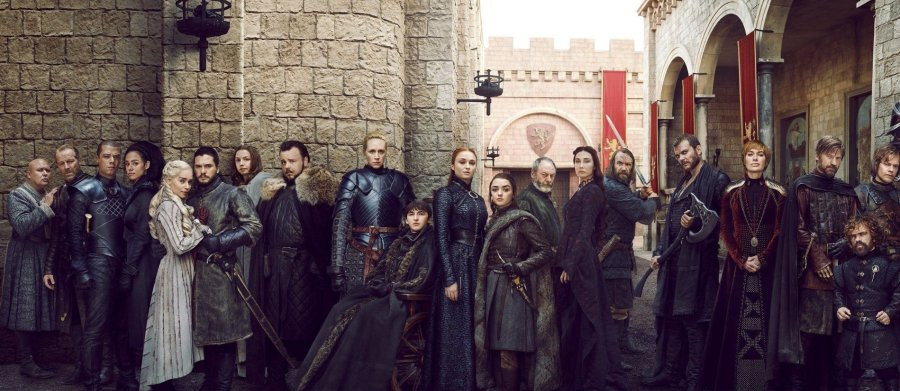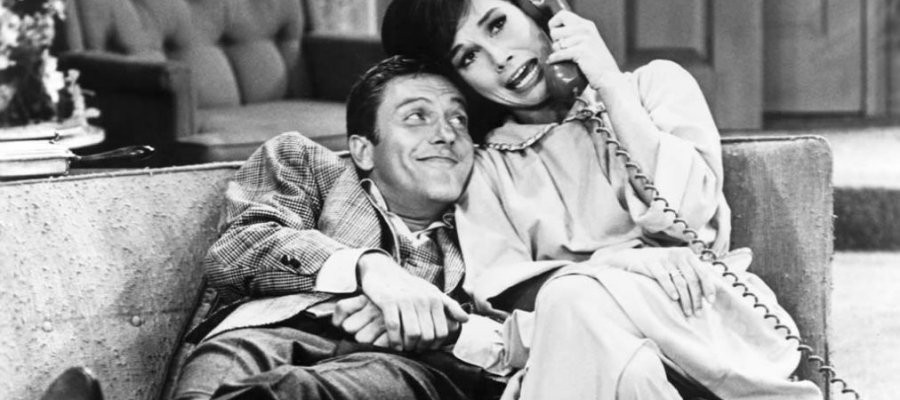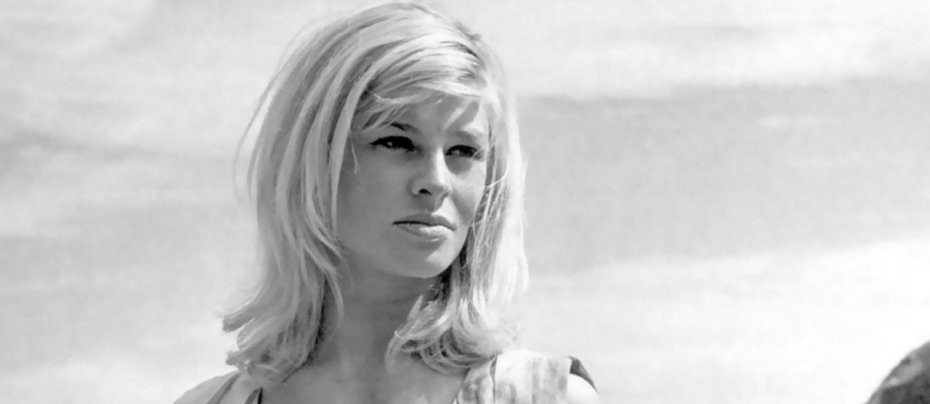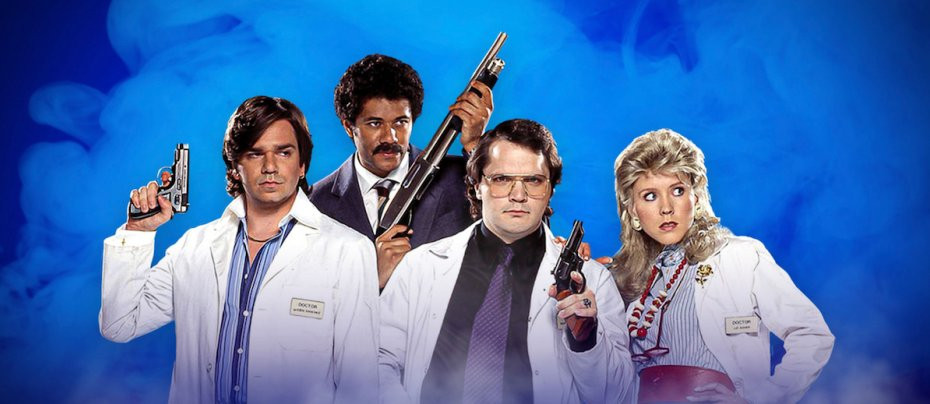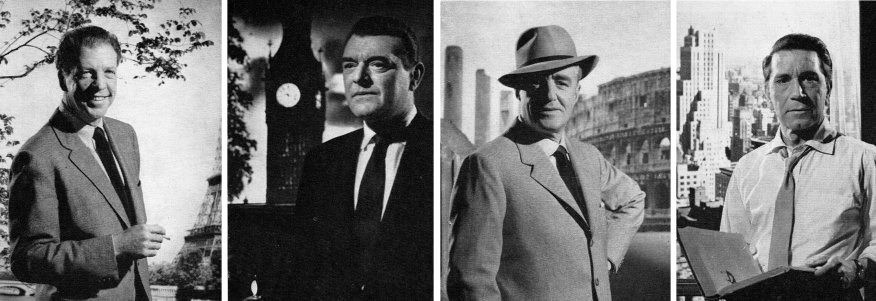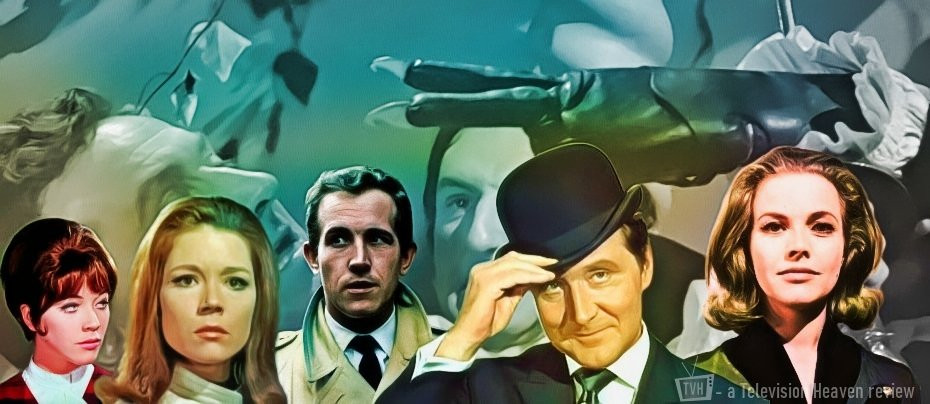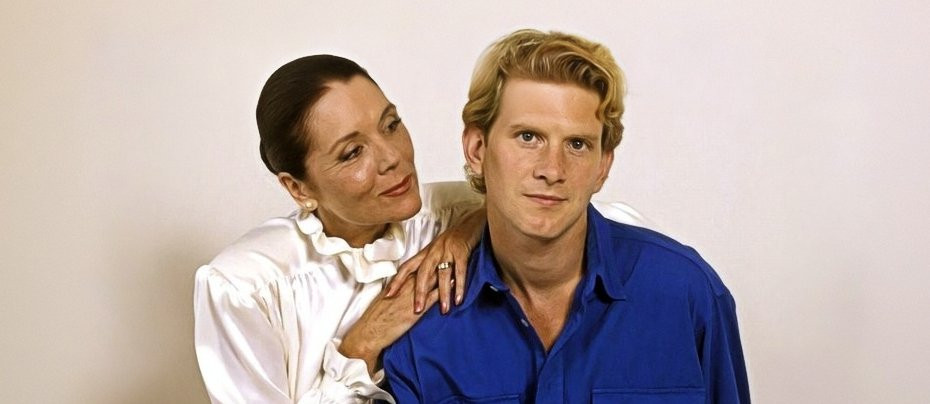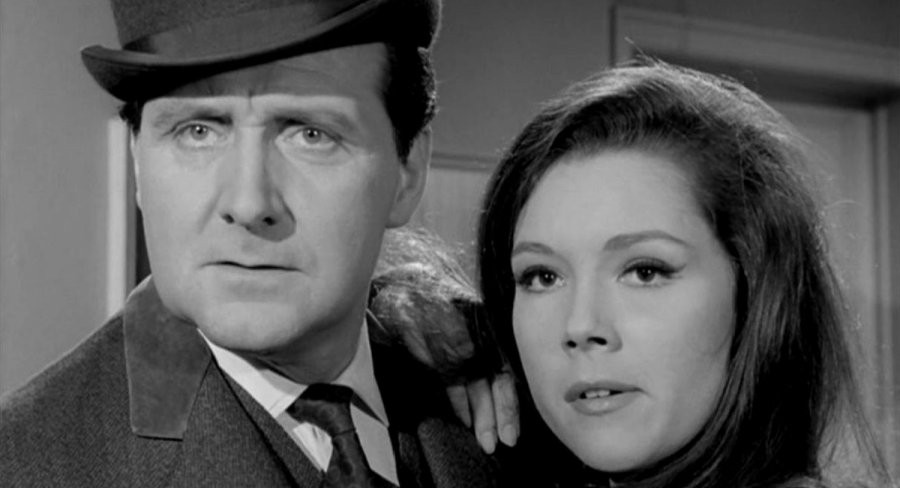
The Avengers
1961 - United KingdomMrs Peel....We're Needed
Few television series have transcended their original concept and evolved to actually help shape and define the era in which they flourished. But then, of course, there are precious few series quite like The Avengers.
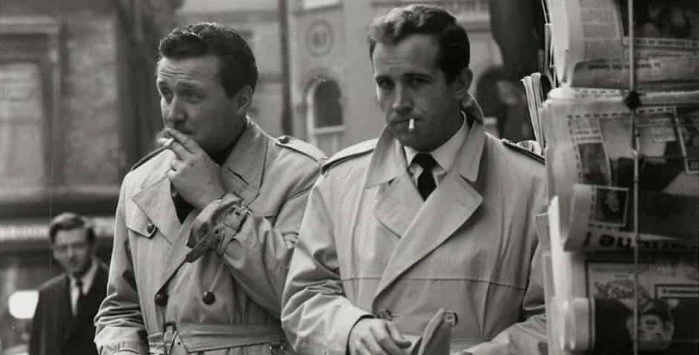
The series was originally launched in January 1961 as a standard tough crime drama following the exploits of crusading young doctor David Keel (played by Ian Hendry). When Keel's fiancé is murdered by a drugs gang, he turns to British Intelligence for help in 'avenging' her death, and that help comes in the form of the mysterious John Steed, played by Patrick Macnee. (The actress who played this part was Catherine Woodville, who married Macnee in 1965).
Hendry quit the series at the end of the first season and with his departure Macnee’s shadowy secret agent was promoted to centre stage. With the arrival of Honor Blackman as the beautiful and resourceful anthropologist, Kathy Gale, The Avengers slowly began to transform into the unique televisual cocktail of wit, style and extravagance, which was destined to hold generations of followers spellbound and almost inadvertently become an elegant byword for a socially awakening decade.
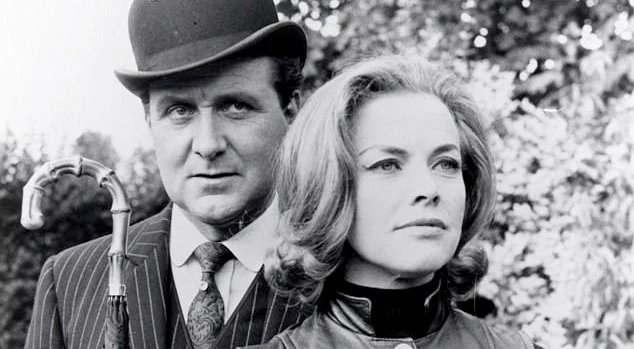
Although the arrival of Blackman’s leather-clad, socially emancipated female foil to Macnee’s urbane agent heralded an entirely new type of positive assertive female to the world’s TV screens, it was in actuality, Blackman’s decision to leave the series for the featured role of pilot Pussy Galore in the second Bond film, Goldfinger, which would act as the catalyst that would ultimately propel The Avengers into its true golden age.
But not before the slightest of creative stalls.
The casting of blonde, statuesque, classically trained actress Elizabeth Shepherd as Blackman’s replacement was deemed to be a mutually unwise move by both production staff and the actress herself, and when Shepherd bowed out following the filming of just one and a half episodes, the race was on to find a suitable replacement.
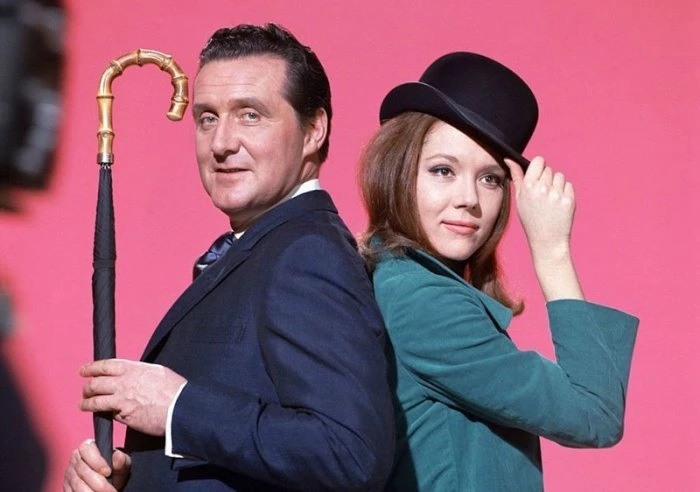
That replacement walked into a casting session in the form of twenty-five-year-old Diana Rigg, and with her arrival, a genuine television phenomenon hit sixties television screens with all the impact of a high-velocity bullet.
Macnee and Rigg’s chemistry was wry, witty, sexually charged and immediate. Rigg’s character of Mrs. Emma Peel, (derived from the show’s costume designer, who suggested that what was needed was someone with "M(an) Appeal"), was a sleek and stylish combination of intelligence, beauty and humour, who dovetailed so perfectly with the more seasoned Macnee’s John Steed character, that the combined charisma produced was a near tangible force which ensnared the viewing audience instantaneously.
With the renewed duo of central characters firmly in place, and a production team and writers unafraid to experiment, The Avengers quite literally carved a totally unique world for its perpetually cool, unruffled, champagne-quaffing heroes which was as surreally 'British' in its own way as the distorted world which Alice had stumbled into beyond the silvered surface of the looking glass.
Following two seasons of monochromatic sophistication, the series (with a hefty injection of U.S. network money), effortlessly made the switch to the additional gloss and glamour and enhanced use of outer locations which came with shooting on film and in colour. But, like Blackman before her, Diana Rigg ultimately vacated the show for the lure of a featured role in a Bond movie, and with her, sadly, the show’s greatest tide of inspired creativity ebbed from the production’s shores, never again to really recapture its original high water mark.
Rigg was replaced by the Canadian born Linda Thorson, as trainee agent Tara King. Younger than Diana Rigg and fresh from drama school, Thorson was no less a competent actor, but she was patently too inexperienced to ever fill the hole left by her brilliantly talented predecessor. The series still managed to amuse and entertain to a standard which few other series of the time could ever dream of matching. Ultimately however, the very same American involvement which had initially boosted the show’s production values, once withdrawn, was also to usher in its demise.
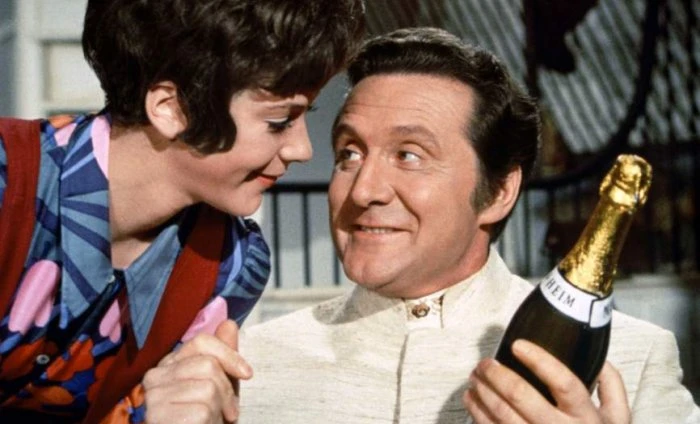
Finally cancelled in 1969, the series, like the "Swinging Sixties" itself, had ironically outlived the very social and stylistic changes which it had itself mirrored and, to a certain extent, influenced.
Six years later, writer/producer Brian Clemens would attempt a resurrection of his greatest triumph in the form of the comparatively disappointing New Avengers - but sadly both the magic of the original and the cheerfully optimistic times in which it had been produced, were far removed for the grittier, more cynically minded era of the mid 1970’s, and the New Avengers vanished from the nation’s screens with more of a whimper than a bang.
A later Hollywood blockbuster movie based on the series only served to underline the fact that stripped of the magical interplay of Rigg and Macnee, and the energy charged, brightly optimistic mood of the decade which it originally sprang from, The Avengers is truly a child of its time. A heady mixture of death at bargain prices and silken smooth wit and sophistication. As an on-going series The Avengers might well be no longer with us, but as long as viewers demand the very quintessence of adventure of the very highest order, then Steed and Mrs. Peel will continue to be...needed.
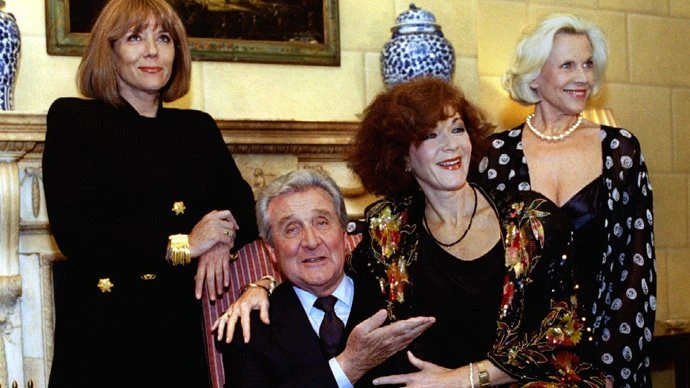
Shows Reviews Related to The Avengers
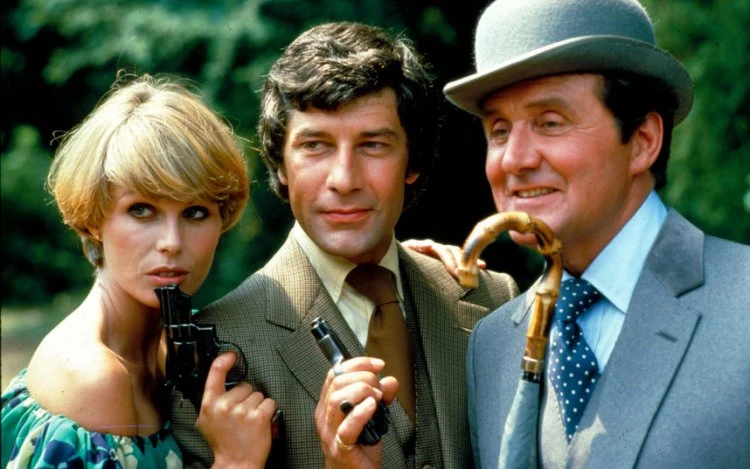
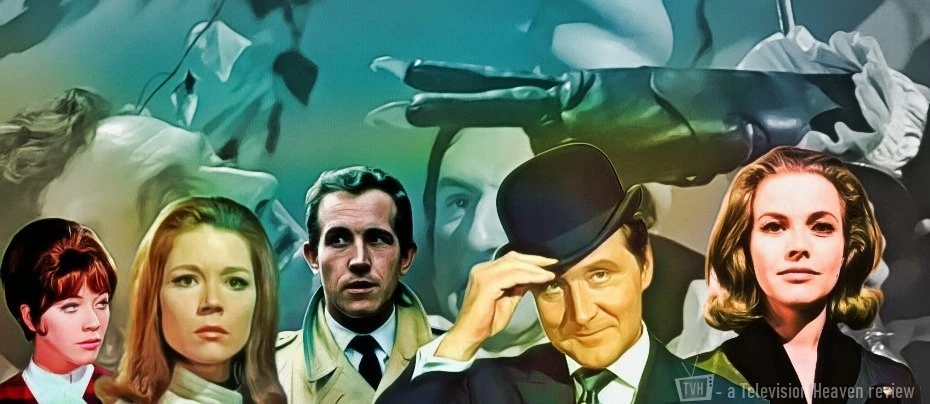
Seen this show? How do you rate it?
Seen this show? How do you rate it?
Published on November 28th, 2018. Huma (1999).


